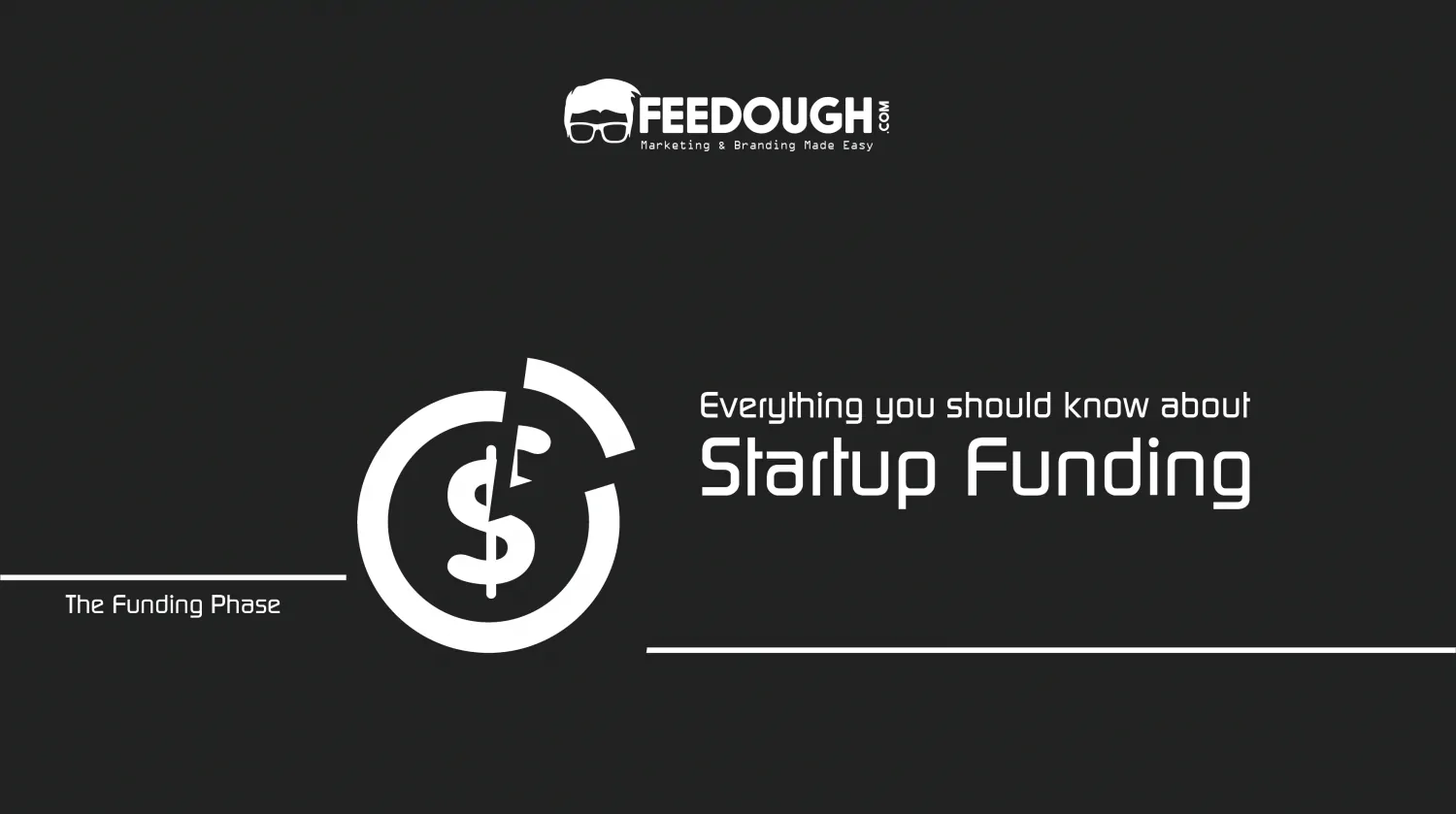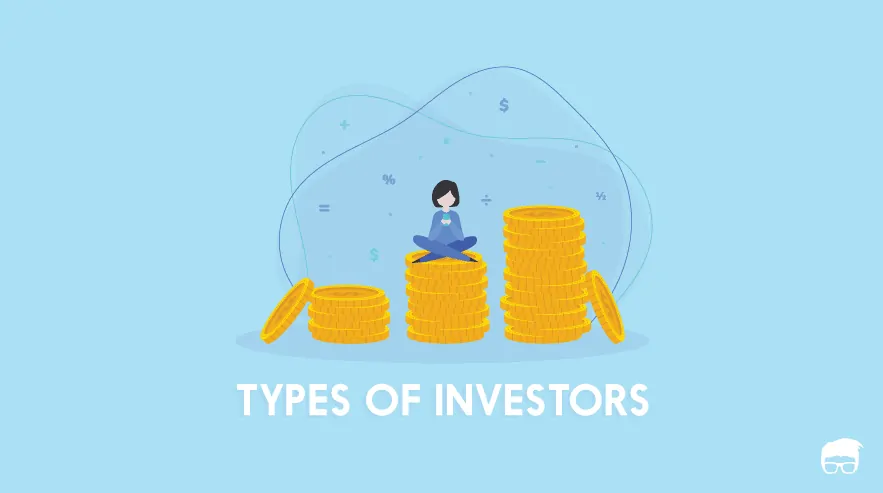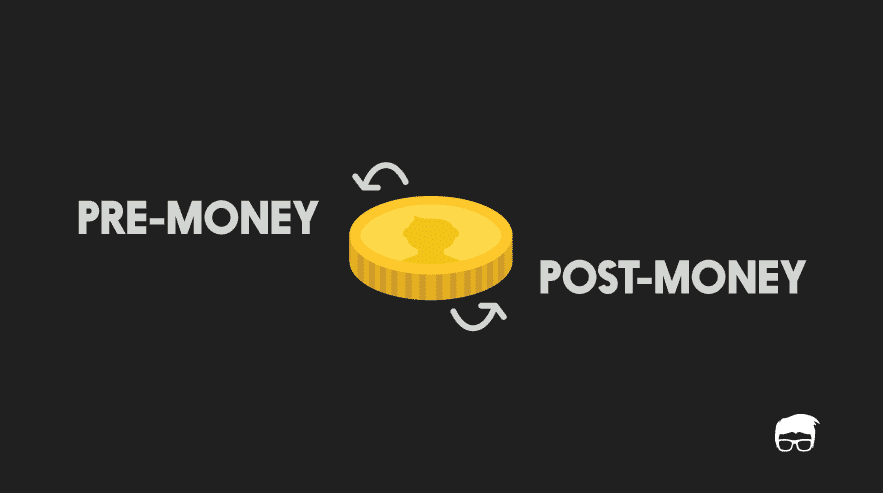Starting a startup is pricey. You end up paying not just for the initial costs but also for operational expenses, IP protection, marketing expenses, and more. And these expenses can cost thousands of dollars, if not more.
So, how do entrepreneurs manage to pull off such a large financial commitment?
Usually, you have two options –
- Get angel investors and venture capitalists to invest in your project, or
- Get a business loan.
Honestly speaking, no investor or bank is willing to invest in the very initial stages of your business. But still, many entrepreneurs succeed in getting a startup business loan without money.
Here’s a guide elaborating on how you can get a startup business loan for your startup.
How To Get A Startup Business Loan With No Money
Spoiler alert – If you’re a new business or a startup with no or very little cash flow, you’re not likely to qualify for a business loan or a startup loan from a traditional brick-and-mortar bank or SBA.
But there’s a turnaround. Look at the assets you own (that you can put up as collateral) and your business’s other qualifications. You can still get a business loan even without money.
Here are some options:
Business Credit Cards
Unlike startup loans, getting a business credit card is easy. You don’t usually need any real-estate collateral or a huge bank balance. All you need is to have good credit and/or a steady monthly income, and you will be eligible for more than one type of card.
The best part?
Business credit cards are unsecured – meaning you won’t have to put any of your personal possessions on the line. And even if you don’t qualify for a traditional business credit card, alternative options like prepaid and secured credit cards exist.
But ensure that you use them responsibly, as high-interest rates are not the only problem with Credit Cards – they may also damage your personal credit score if you fail to pay them on time.
Equipment Loans
Equipment loans refer to taking a loan out to purchase new equipment for your business. In this case, the equipment you buy becomes collateral and can act as an alternative to cash.
Some lenders won’t even require you to put anything else down as collateral, so it’s worth checking around and seeing if any lender will offer you such terms – which could save you thousands of dollars in the long run, if not more.
The good part?
Some lenders can even offer to fund 100% of the equipment you’re buying – meaning you won’t have to put any money down, and they’ll even cover the shipping cost.
The most important thing here is to compare terms from multiple lenders and get the best one for you – look at factors such as loan amount, interest rate, payment schedule, down payments required, etc., before you make a decision.
Microloans
Microloans are small loans of up to $50,000 given by lenders specifically to help small business owners get started and grow.
These loans are usually unsecured and require no collateral – meaning you won’t have to put anything on the line to get approved for them. This is because the lenders of such loans are usually nonprofits and mission-based organisations like non-governmental organisations (NGOs), churches, and small business development centres.
You can get a microloan even if you have no money to put down, and the best part is that these loans come with much lower interest rates than traditional bank loans – so it’s definitely worth considering this option before going to any other source for financing.
Payday Loans
If you started your business while still employed, you could consider taking out a payday loan.
Payday loans are very short-term loans and have a higher interest rate than traditional bank loans – but they can be extremely helpful in getting your business started if you don’t have any money to put down.
The best part? Payday lenders usually require minimal paperwork and don’t require any collateral – so it’s relatively easier to get approved for a payday loan than any other type of loan.
Just ensure that you pay them off on time, as they will start charging late fees and can eventually raise your interest rate if you fail to keep up with the payments.
Invoice Financing
Invoice financing (also known as accounts receivable financing) allows you to take out a loan against the invoices you have sent to clients – but haven’t collected yet.
In this case, the unpaid invoices act as collateral and can be used to get approved for the loan – meaning you won’t have to put down any money or provide any other type of collateral.
This type of business loan can be completed within a few days and with minimal paperwork, making it perfect for entrepreneurs who need cash fast but don’t have the funds to put down as collateral.
Merchant Cash Advances
Merchant cash advances are basically an advance from a lender against your future credit card sales.
This type of loan is perfect for businesses with a steady stream of credit card transactions as you can use this money to get your business up and running without having to put down any money or collateral.
Moreover, they are structured to allow you to pay back the advance at your own pace – making them extremely flexible and ideal for businesses with inconsistent cash flows.
However, one of the downsides to this type of loan is that it comes with a much higher interest rate than traditional loans – so make sure you compare different lenders and get the best terms before going for a merchant cash advance.
Venture Debt
If your startup is disruptive enough, you can reach out to venture capital firms instead of banks and ask for venture debt.
Venture debt is basically a loan taken from venture capital firms that is similar to traditional bank loans, minus the need to put down any money or collateral as security.
While many argue that venture capital firms don’t invest in very early stage startups, there are some firms that can provide venture debt to such businesses.
The best part? The interest rates on venture debt are usually lower than those of traditional bank loans – making them a great alternative for entrepreneurs who aren’t able to get approved for regular business loans.
Crowdfunding
While not the usual type of loan, crowdfunding has become an increasingly popular option for entrepreneurs in recent years.
Crowdfunding allows you to get money from a large number of people who might support your project and want to see it come to life – without having to put down any money or collateral as security.
There are several different types of crowdfunding platforms that you can choose from. Some are:
- Reward-based crowdfunding platforms like Kickstarter, where you can offer t-shirts, digital downloads or other rewards in exchange for donations.
- Equity crowdfunding platforms like AngelList, where people can invest in your startup and get equity in return.
- Debt crowdfunding platforms like LendingClub, where people can give you money and expect a return on their investment.
In India, several crowdfunding platforms, like Cred and BharatPe, catering to users with high credit scores and good credit history, have come up in recent years, making it easier than ever for aspiring entrepreneurs to get funding without having to put down any money.
Tips To Getting A Startup Business Loan
If there aren’t sufficient funds to put down as a down payment or no collateral to provide, getting approved for a business loan can be difficult – but it’s not impossible.
Here are some tips to keep in mind if you’re looking to get a startup business loan with no money:
Evaluate What You Can Put As Collateral
Take a look around your business and see if there is anything you can put up as collateral. This could be anything from equipment to real estate or even a vehicle – so it’s worth evaluating to see if you can use any of these assets as collateral.
This will tell the lender that you are invested in the business and will be more likely to pay back the loan.
Find A Co-Signer or Guarantor
If you don’t have any collateral, it’s worth finding someone who can co-sign or guarantee your loan – which means they would take responsibility for making payments should you fail to pay.
This could be a family member, friend, or colleague who believes in your business and would be willing to help you get started.
Understand Your Credit Score
If you don’t have any money or collateral to put down, lenders will look at your credit score to determine if you’re eligible for the loan. Thus, it’s important to understand your credit score and how to improve it before approaching a lender.
Research Lender Requirements
Different lenders usually have different requirements for startup business loans, so it’s important to do your research and find out which ones are offering the best terms.
For example, lenders usually look for three aspects while evaluating loan applications:
- Time in business: How long has the company been in operation?
- Credit history: What is the credit score of the business and/or its owners?
- Debt-to-income ratio: What is the debt to income ratio for the business and/or its owners?
- Annual revenue: What is the company’s annual revenue?
While there are some banks and financial institutions that disregard the revenue altogether.
By researching different lenders’ requirements, you’ll be better equipped to get the loan that best fits your business needs.
Research Different Loan Options
It’s important to research different types of loans and find out which one will be the most suitable for your business. While traditional bank loans may seem like the only option, there are many alternatives, such as merchant cash advances, payday loans and invoice financing, that you can explore.
So, ensure you compare different loan options and find out which one will be the most suitable for your business needs.
Apply For Several Loans
The best way to increase your chances of getting approved for a startup business loan is by applying at several places – so apply at as many banks or non-traditional lenders as possible.
This will increase the chances that at least one of them will approve your application, and you’ll get the loan you need to start your business.
Know The Loan Amount You Can Afford
Whether a bank or a non-traditional lender approves your loan application, it’s essential to know the amount you can comfortably afford to pay back.
You don’t want to take out a loan that is too big and become overwhelmed with debt later on – so make sure you only borrow an amount that is within your means.
Should You Get A Startup Business Loan With No Money?
Money is the seed you put into a business to make it grow. But loans are not always the best option – especially when you don’t have any money to put down as a down payment.
Before taking out a loan, think about alternative options like:
- Getting a partner on board: Look for a partner who can provide capital and expertise to get your business off the ground.
- Equity financing: Where investors provide funds in exchange for a portion of your company’s equity.
- Crowdfunding: where you raise money from a large number of individuals who support your project.
- Startup grants: Business grants are like free money that don’t need to be paid back. Specific organisations and government initiatives offer grants to help entrepreneurs in specific industries or solve a particular issue.
If you can’t find any other options and need to take out a loan, it’s important to make sure you understand the terms and conditions before signing on the dotted line. That way, you can ensure that you get an effective loan with a repayment plan that you’re comfortable with.
Startup Business Loans FAQs
Several questions come up when it comes to startup business loans – here are some of the most commonly asked ones:
The best loan for a startup business depends on many factors, such as the amount needed, the type of lender you’re applying to and whether or not you have collateral. It’s important to research different loan options and find the one that’s most suitable for your business needs.
Requirements for a startup business loan vary from lender to lender but usually include time in business, credit history of the company and/or its owners, debt-to-income ratio of the company and/or its owners, and the company’s annual revenue.
Yes, getting a startup business loan is possible even if you don’t have collateral to offer. Such loans are often referred to as unsecured business loans, meaning that any asset does not back them. The risk for lenders is higher in this case, so these loans often have higher interest rates and stricter eligibility criteria, including a high credit score and a strong business plan.
Various types of unsecured business loans are available, such as term loans, lines of credit, and invoice financing. Online lenders and microlenders often provide these types of loans. However, it’s crucial to read the terms and conditions carefully and understand the costs associated with these loans before applying.
Getting a startup business loan with no credit can be challenging, but it’s not impossible. Lenders typically rely on credit history to determine your creditworthiness and loan repayment ability. However, if you have no credit, there are several alternative options you can explore:
Get a business loan on the name of your partner or friend with a good credit score
Leverage your personal assets such as real estate, stocks, bonds and other securities
Apply for an unsecured loan from online lenders who don’t rely on credit checks. But know that such loans will likely come with higher interest rates.
Look for grants that are designed specifically to help entrepreneurs start their businesses.
A startup consultant, digital marketer, traveller, and philomath. Aashish has worked with over 20 startups and successfully helped them ideate, raise money, and succeed. When not working, he can be found hiking, camping, and stargazing.
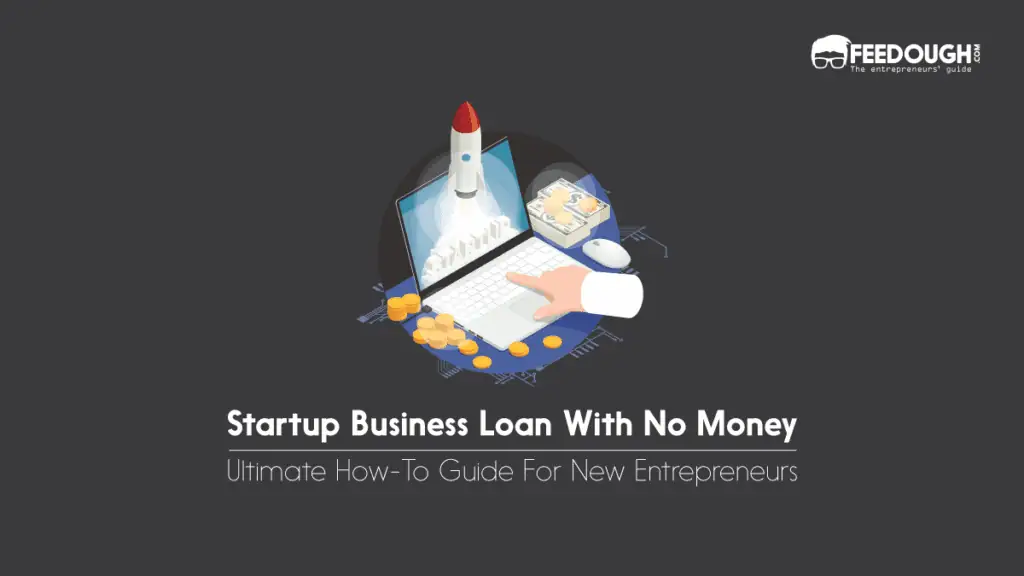

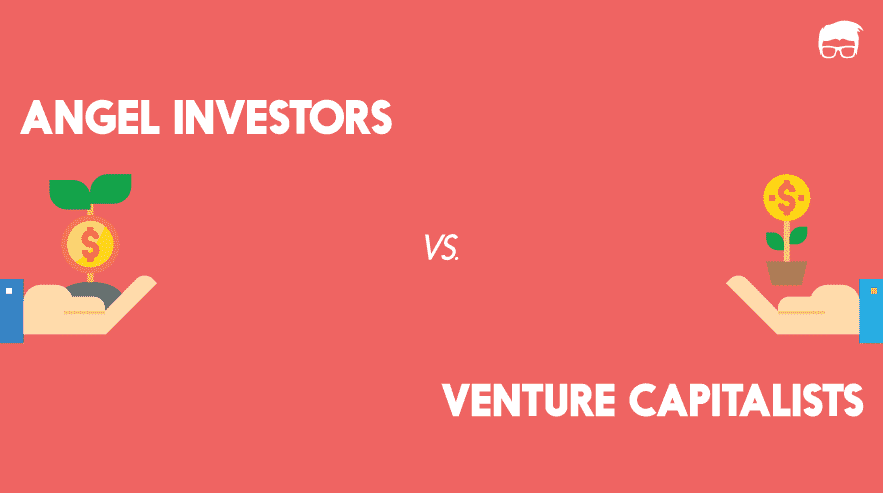
![How To Get Startup Funding [The Complete Guide] startup funding guide](webp/startup-funding-guide.webp)


